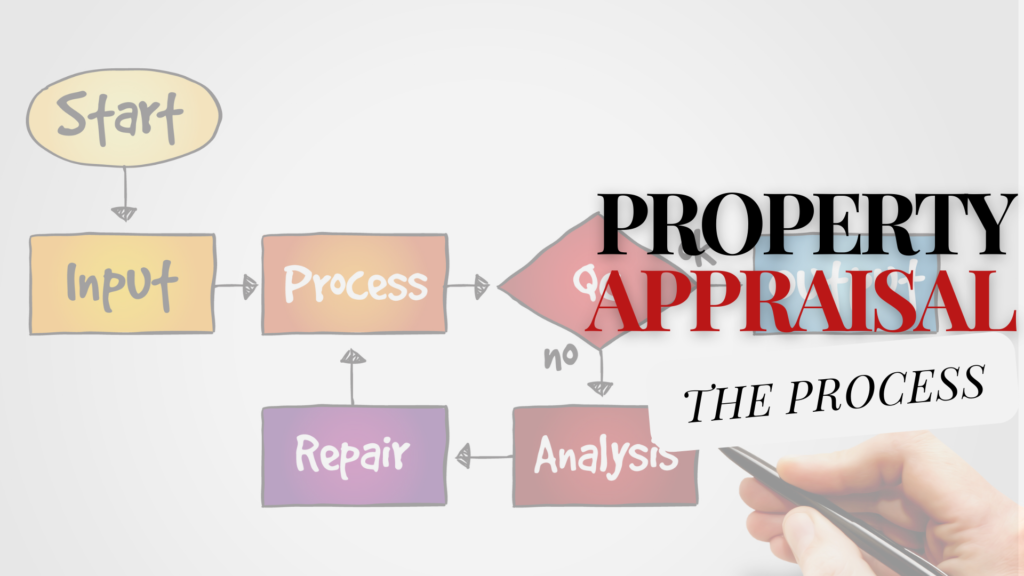In Ontario, property appraisals play a crucial role in various real estate transactions and decisions. Whether you are purchasing a home, refinancing a mortgage, or settling a divorce, a property appraisal ensures that the value of the property aligns with the financial aspects involved. Accurate and up-to-date property information is key to achieving fair and effective outcomes.
Let’s imagine you’re planning to buy your dream home in Toronto. You’ve spent months searching for the perfect property, and finally, you’ve found it. The next step is obtaining a mortgage to finance your purchase. The lender requires a property appraisal to confirm that the value of the home matches the loan amount you’re requesting.
John, a certified appraiser, visits the property to assess its value. He carefully examines every detail, taking note of the property’s features, such as the number of bedrooms, bathrooms, and square footage. John also considers the location, nearby amenities, and the current real estate market in Toronto.
After collecting all the necessary data, John analyzes it to determine the home’s value. He compares the property to similar homes that have recently sold in the area, considering their size, condition, and location. John takes into account any upgrades or unique features that could impact the property’s value.
Based on his expertise and the thorough appraisal process, John prepares a detailed report that provides an accurate valuation of the property. This report will be crucial in determining whether you can obtain the desired mortgage amount and move forward with your home purchase.
Key Takeaways:
- A property appraisal ensures that the value of the property aligns with the financial aspects of real estate transactions.
- Certified appraisers, like John, follow a meticulous process to assess a property’s value.
- Factors such as location, size, condition, and recent sales in the area are considered during the appraisal.
- Appraisal reports provide an accurate valuation of the property and help inform financial decisions.
- Accurate and up-to-date property information is essential for fair and effective outcomes in real estate transactions.
Reasons for Property Appraisal
When it comes to property transactions and financial decisions in Ontario, property appraisals play a crucial role in ensuring that the value of the property aligns with the associated investments. Lenders often require property appraisals to guarantee that the property’s value supports the mortgage loan amount, whether it’s for purchasing a home, refinancing a mortgage, or obtaining a home equity line of credit (HELOC).
In addition to these common scenarios, other situations also warrant property appraisals. Mortgage renewal, for instance, may trigger an appraisal if there have been significant changes in the market or substantial shifts in property value. Understanding the current value of the property is essential to make informed decisions regarding mortgage renewal.
Private mortgages, which are becoming increasingly popular, also rely on accurate property appraisals. Calculating the loan-to-value (LTV) ratio is crucial to determine the appropriate loan amount, and appraisals provide precise valuations to facilitate this process.
Moreover, property appraisals are necessary for various legal and financial matters, such as removing private mortgage insurance (PMI), settling divorce cases, estate settlements, and property tax assessments and appeals. These situations demand accurate and reliable property valuations to ensure fair and equitable outcomes for all parties involved.
To ensure the accuracy and reliability of property valuations, it is essential to rely on certified appraisers. Certified appraisers follow a standardized appraisal process outlined by reputable organizations such as the Appraisal Institute of Canada (AIC). By adhering to these strict standards, certified appraisers provide objective and unbiased evaluations of properties, enabling individuals and institutions to make informed decisions based on a solid foundation of accurate information.

Appraisal Process Overview
The property appraisal process in Ontario follows a systematic approach aligned with the standards set by the Appraisal Institute of Canada (AIC). This ensures the integrity and accuracy of the valuations conducted. The process involves several key steps that collectively determine the final value of a property.
Defining the Problem
The first step in the appraisal process is defining the problem. This involves clearly understanding the purpose of the appraisal, whether it’s for a home purchase, refinancing, property tax assessment, or other reasons. Defining the problem also includes identifying the property and its unique attributes that contribute to its value.
Identifying the Property and Conducting Attribute Analysis
Once the problem is defined, the appraiser identifies the property being appraised. This includes gathering relevant information about the property, such as its location, size, condition, and any special features or improvements. Conducting an attribute analysis helps the appraiser better understand the property’s strengths and limitations, which influence its value.
Highest and Best Use Analysis
Appraisers perform a highest and best use analysis to determine the most profitable and feasible use of the property. This involves considering potential alternative uses, zoning regulations, and market demand. The highest and best use analysis helps determine the property’s maximum value.
Market Analysis
Market analysis plays a crucial role in the appraisal process. Appraisers research and analyze recent sales data of comparable properties in the area. This enables them to understand current market trends and benchmark the value of the subject property against similar properties that have recently sold.
Data Reconciliation and Final Value Determination
After conducting the necessary analyses and gathering all relevant data, the appraiser reconciles the information to arrive at a final value for the property. This involves weighing the various factors that impact the property’s value, such as location, condition, market conditions, and comparable sales. The final value reflects the appraiser’s professional judgment and expertise, providing an accurate and reliable assessment of the property’s worth.
| Step | Description |
|---|---|
| Defining the Problem | Identify the purpose and characteristics of the property being appraised. |
| Identifying the Property and Conducting Attribute Analysis | Gather information about the property and analyze its unique attributes. |
| Highest and Best Use Analysis | Determine the most profitable and feasible use of the property. |
| Market Analysis | Research and analyze recent sales data of comparable properties. |
| Data Reconciliation and Final Value Determination | Weigh and reconcile all factors to arrive at the final value of the property. |
Appraisal services in Ontario are provided by professional appraisal companies. The cost of an appraisal can vary depending on the type and complexity of the property being appraised. It is essential to engage a reputable appraisal company with certified appraisers to ensure accurate and reliable property valuations.
Also Read:
- How Much Does an Appraisal Cost in 2024?
- Appraisal Nightmare: Falling Home Prices
- Property Appraisal Process
- Appraisal Institute of Canada (AIC)
Steps in the Appraisal Process
The appraisal process involves a series of steps that ensure an accurate and reliable valuation of a property. Understanding these steps can help you navigate the appraisal process with confidence.
- Defining the Problem: The first step in the appraisal process is to define the problem. This includes identifying the property and determining the property rights being valued. Additionally, the purpose and date of the appraisal are specified, along with stating the intended use of the appraisal.
- Gathering Data: The next step is to gather data about the property and comparable properties. This can be done through on-site inspections and by accessing existing records. During this step, various factors are considered, such as measurements, zoning status, neighborhood analysis, and checking for any liens or encumbrances on the property.
- Highest and Best Use Analysis: Conducting a highest and best use analysis is an important part of the appraisal process. This analysis helps determine the most profitable use of the property, considering factors such as its location, potential improvements, and market demand.
- Market Analysis: To understand current market trends and conditions, an appraiser performs market analysis. This involves examining comparable property sales, current listings, and market trends and conditions relevant to the property under appraisal.
- Data Reconciliation and Appraisal Report: The final step is to reconcile the data collected and prepare an appraisal report. The data is carefully reviewed and analyzed to arrive at a final value conclusion. The appraisal report documents the entire appraisal process, the data used, and the appraiser’s final valuation opinion.
By following these steps, appraisers ensure a thorough and comprehensive appraisal process, resulting in an accurate appraisal report that can be relied upon for various real estate transactions and financial decisions.
Conclusion
The property appraisal process in Ontario plays a crucial role in a variety of financial decisions and transactions. By following a systematic approach, professional appraisers carefully consider the purpose, attributes of the property, highest and best use, and market analysis. By reconciling data, they prepare an appraisal report that provides a final value conclusion.
Appraisal services, provided by certified appraisers and reputable appraisal companies, ensure accurate and reliable property valuations. Understanding the appraisal process empowers individuals to make informed decisions when it comes to real estate investments and transactions.
Whether you’re purchasing a home, refinancing a mortgage, settling a divorce, or dealing with estate settlements, relying on a certified appraiser and their detailed appraisal report is essential. Their expertise and adherence to industry standards ensure that you can trust the value assigned to your property during the appraisal process.
By valuing accuracy, the appraisal process supports fair and effective outcomes for all parties involved in real estate transactions. With the help of professional appraisal services, you can have confidence in the value of your property and make well-informed financial decisions.
FAQ
Why do I need a property appraisal?
Property appraisals are commonly required in various situations, such as purchasing a home, refinancing a mortgage, obtaining a home equity line of credit (HELOC), mortgage renewal, private mortgages, private mortgage insurance (PMI) removal, settlement of a divorce, estate settlements, and property tax assessments and appeals. Appraisals ensure that the value of the property aligns with the financial decisions and transactions involved. Accurate and up-to-date property information is essential for fair and effective outcomes.
Who typically requests a property appraisal in Ontario?
Lenders in Ontario typically request property appraisals to ensure that the property’s value supports the mortgage loan amount for scenarios like purchasing a home, refinancing a mortgage, and obtaining a HELOC. Mortgage renewal may also trigger an appraisal if there have been significant market changes or substantial shifts in property value. Private mortgages often require appraisals to calculate the loan-to-value (LTV) ratio accurately. Appraisals are also necessary for removing PMI, settling a divorce, estate settlements, and property tax assessments and appeals. Certified appraisers follow a standardized appraisal process to provide accurate and reliable valuations.
What is the process for a property appraisal in Ontario?
The property appraisal process in Ontario follows a systematic approach aligned with the standards set by the Appraisal Institute of Canada (AIC). The process typically involves defining the problem, identifying the property and its attributes, conducting a highest and best use analysis, performing market analysis, and reconciling data to determine a final value. Appraisal services are offered by professional appraisal companies, and the cost of an appraisal can vary depending on the type and complexity of the property being appraised.
What are the steps involved in the property appraisal process?
The appraisal process begins with defining the problem, which includes identifying the property, determining the property rights being valued, specifying the purpose and date of the appraisal, and stating the intended use of the appraisal. The next step is to gather data about the property and comparable properties, both from on-site inspections and existing records. Measurements, zoning status, neighborhood analysis, and checking for liens or encumbrances are also part of this step. A highest and best use analysis is conducted to determine the most profitable use of the property, and market analysis helps in understanding current market trends. Finally, the data is reconciled, and an appraisal report is prepared with a final value conclusion.
How does the property appraisal process benefit individuals?
The property appraisal process in Ontario is vital for various financial decisions and transactions. Professional appraisers follow a systematic approach, considering the purpose, property attributes, highest and best use, and market analysis. Reconciling data leads to the preparation of an appraisal report with a final value conclusion. Appraisal services provided by certified appraisers and appraisal companies ensure accurate and reliable property valuations. Understanding the appraisal process helps individuals make informed decisions regarding real estate investments and transactions.












